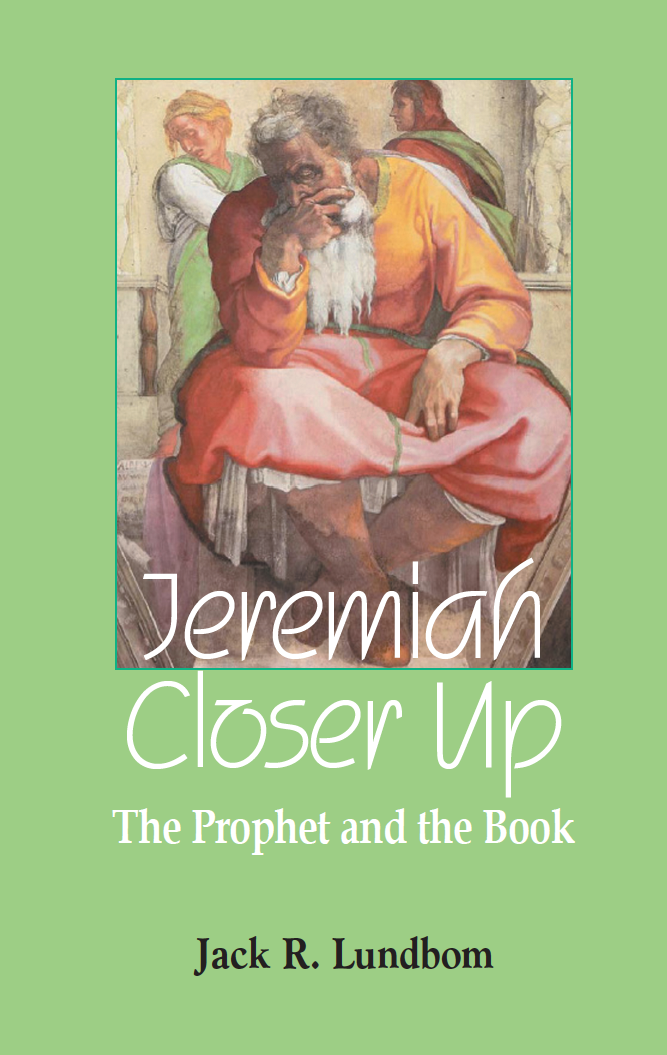Jeremiah Closer Up: The Prophet and the Book
£12.50 – £18.00
Closer up than what? Many recent studies of Jeremiah leave us with but a faint glimmer of this great Hebrew prophet; in some he disappears completely into later tradition. The present essays combine to argue that both the prophet and his book can be viewed “closer up” than the imagination of many modern-day interpreters will allow.
Closer up than what? Many recent studies of Jeremiah leave us with but a faint glimmer of this great Hebrew prophet; in some he disappears completely into later tradition. Some scholars think that the book of Jeremiah lacks historical veracity: when it was composed, supposedly in the late exilic or postexilic periods, historical memories had been dimmed and ideology had come to dominate the Jeremiah legacy. The present essays combine to argue that both the prophet and his book can be viewed “closer up” than the imagination of many modern-day interpreters will allow.
The first three essays discuss the text, rhetoric and composition of the book of Jeremiah. The longer Hebrew text is given preference over the Greek Septuagint text, which means that we can dispense entirely with the idea that scribes were busily writing, editing and expanding the Jeremiah book in Babylon. Rhetorical and other delimiting criteria show that Jeremiah’s so-called ‘Temple Sermon’ (7.1-15) is rather a cluster of three oracles manifesting a rudimentary form of logic. Finally, a correlation of Gedaliah’s murder with the exile of 582 argues for a nearly four-year existence of the remnant community at Mizpah, more than enough time for Jeremiah and Baruch to write up the events following the destruction of Jerusalem.
The remaining essays discuss Jeremiah’s views of history, the created order, the covenant, and nations of the world, as well as the prophet’s so-called ‘confessions’. These extraordinary insights into the interior disposition of a Hebrew prophet reveal how Jeremiah felt about the word he had to preach, and what impact it had on him personally. The confessions are analysed both as formal psalm-like laments, and as gems of rhetorical composition.
Additional information
| table of contents | 1 THE TEXT OF JEREMIAH The LXX and MT A Short Hebrew Text of Jeremiah Haplography in the Short Hebrew Text 2 RUDIMENTARY LOGIC IN JEREMIAH Logic among the Ancient Greeks Argumentation in Ancient Israel The Enthymeme in Prophetic Preaching Rudimentary Logic in Oracle Clusters of Jeremiah 3 JEREMIAH AND SCROLL-MAKING Telescoping History Baruch, Seraiah, and the Jeremiah Scroll 4 JEREMIAH AND HISTORY Historical Consciousness in Ancient Israel Jeremiah’s Call Veiled in Mystery The Prophet like Moses A Romantic View of the Wilderness Trek History Begins and Ends with Salvation 5 JEREMIAH AND THE CREATED ORDER Visions of Cosmic Destruction A Good Creation Gone Bad Regular Creation, Irregular Judah Humans Taking on the Behavior of Animals Yahweh Creator of Heaven and Earth Yahweh Creator and Re-creator of Nations Yahweh’s Covenant with Creation Yahweh and A New Creation 6 JEREMIAH AND THE COVENANT Covenant in Ancient Israel Covenant in Prophetic Preaching Hosea on the Covenant Jeremiah and the Covenant Jeremiah’s New Covenant The New Covenant in Judaism and Christianity 7 THE CONFESSIONS OF JEREMIAH The Confessions Are Mostly Laments Individual and Communal Laments in the Psalter Rhetoric and Composition in the Psalms Individual and Communal Laments of Jeremiah 8 JEREMIAH AND THE NATIONS Hebrew Prophets as International Figures Jeremiah Prophet to the Nations Yahweh God of All Nations Authenticity of Jeremiah’s Foreign Nation Oracles Foreign Nation Oracles and Holy War Rhetoric in Jeremiah’s Foreign Nation Oracles Nations Judged for Wickedness, Hubris, and Idol Worship |
|---|---|
| author | |
| authors | |
| editors | |
| isbn | |
| list price (paperback) | |
| page extent | |
| publication | |
| publication date | |
| series | |
| table of contenta | |
| version |


Richard G. Smith, Review of Biblical Literature. –
This is a fine collections of essays, well written, quite readable and interesting. While Lundbom has presented many of these arguments elsewhere in more detail, this collection provides a more succinct and integrated presentation that challenges us to appreciate anew just how much the book of Jeremiah has to tell us about its own origins and the ministry of the prophet whose name it bears.